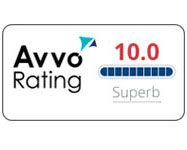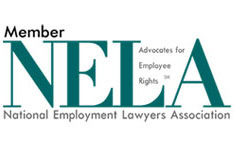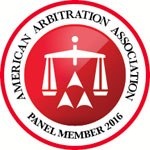Doris Dabrowski advises federal employees about options to appeal adverse job actions and to secure benefits. State and local government employees may have protections under the civil service system, tenure acts, whistle blower protection laws, the constitution of the United States and state constitutions. State laws or municipal ordinances govern retirement and disability benefits for public employees. Doris Dabrowski’s experience includes:
- Civil Service appeals
- Board of Pension appeals
- New Jersey Division of Pensions and Benefit appeals
- Applications for government retirement and disability pensions
- Survivor benefit claims
- Merit Systems Protection Board
- Equal Employee Office Commission (EEOC) Office of Hearings
- Lawsuits under §1983 of the Civil Rights Act for violations of the due process and first amendment rights
- State constitutional claims
- Appeals of charter school employees
Government Contractors
Doris Dabrowski can help contractors and their employees navigate through employment requirements to comply with the terms of government contracts. Employers with federal contracts or subcontracts valued at more than $10,000.00, depositories of federal funds, and bond payment and issuing agents must comply with executive orders prohibiting discrimination and implementing affirmative action programs. Executive order 11246 prohibits discrimination based on sexual orientation, as well as race, color, religion, sex or national origin by covered federal contractors.
Federally funded construction contracts subject to the Davis-Bacon Act and related laws require the contracting employers to pay prevailing wages determined by the Department of Labor. The prevailing wage may exceed the minimum wage established by wage and hour laws. The Service Contract Act requires prevailing wages to employees of contractors providing services to the federal government.
Security Clearances
Employees who need to know classified information to perform job duties require a security clearance. The application process begins with the honest completion of the Personnel Security Questionnaire. A personal interview and possibly interrogatories follow the application. The government may grant a security clearance based upon the responses to the interview questions and interrogatories, or may require the applicant to appear at a hearing at the Defense Office of Hearings and Appeals (DOHA). Employees with questions or concerns about potential disqualifying factors should contact an experienced attorney before responding to questions. Consultations with an attorney are confidential.
The loss of a security clearance may be the basis of removal from employment. The Merit Systems Protection Board (MSPB) does not have jurisdiction over decisions to revoke a security clearance, despite jurisdiction over the adverse employment action itself.
Contact us for advice before responding to questionnaires, to prepare for investigations, or to challenge decisions.









